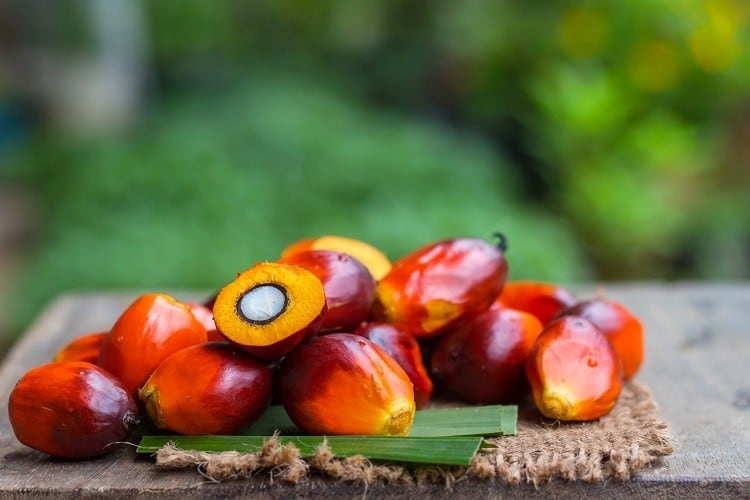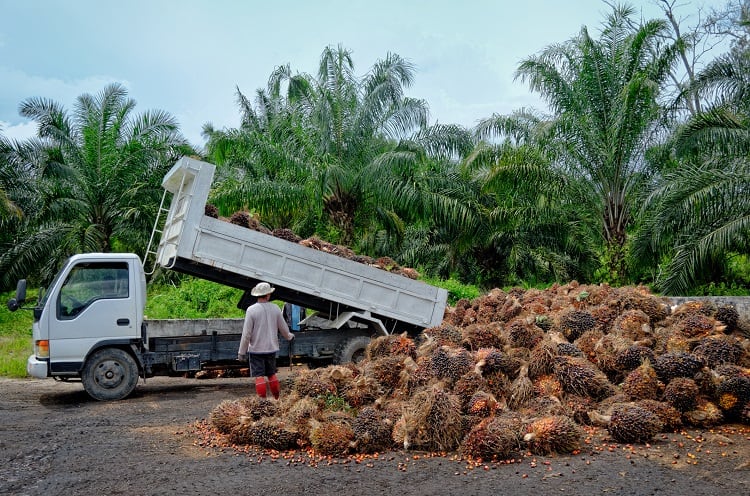DuPont N&B advocates an industry shift toward more sustainably sourced palm oil. Having signed up to RSPO back in 2004 the Copenhagen-headquartered company has since called for ‘inclusive collaborations’ to transform the palm oil industry.
Like DuPont N&B, the food sector as a whole has also been on a journey towards adopting more sustainable palm oil, the company’s sustainability chief, Mikkel Thrane, observed. Certainly, demand for sustainable certified palm oil is growing. In 2019, Roundtable on Sustainable Palm Oil (RSPO) certified palm oil volume increased by 13%.
“Palm oil is the most consumed vegetable oil globally. Sustainability concerns related to palm oil production have been on the food industry’s agenda for many years now. Since the founding of the RSPO in 2004, many manufacturers and retailers have pledged their commitment to eliminating palm oil that is not RSPO-certified from food products.”
RSPO certification, which demonstrates that palm oil was produced in line with the Rountable’s principles and criteria, is central to how DuPont N&B defines ‘sustainable’ palm oil. “By respecting those criteria, we can help to reduce the negative impacts of palm oil cultivation on the environment and communities,” Thrane explained. “We are extremely proud of our long-standing collaboration with RSPO, and the achievements we have made in leading the industry towards more sustainable palm oil.”
Indeed, RSPO-certification has a big impact on the footprint of palm oil. A recent life cycle assessment conducted by 2.-0 LCA Consultants published in the Journal Of Cleaner Production, showed that the carbon footprint of RSPO certified palm oil is 35% smaller than conventional palm oil.
In choosing RSPO certified palm oil, companies can make a ‘big dent’ in their upstream greenhouse gas emissions, which can be a key lever for companies whose climate goals are aligned with the Science Based Target initiative (SBTi).

In 2017 DuPont N&B achieved an ‘industry first’ with its offer of 100% RSPO-certified palm-based emulsifiers using a combination of book & claim, mass balance and segregated palm oil.
The company is now working towards its 2025 goal of achieving 100% physical certified sustainable palm grade of mass balance or above while simultaneously phasing out RSPO credits globally. This means moving away from book & claim palm oil use, which uses credits to remove the need for physical traceability, and relying on chain of custody systems.
Targeting transparency
This year, a ‘key milestone’ on this journey was reached, Thrane told this publication. “In 2020, DuPont N&B achieved a key milestone by sourcing 100% physical RSPO certified palm oil and derivatives for its emulsifiers produced in Europe and North America. Our implementation plan includes requesting traceability information on a regular basis from our direct suppliers. Our Q1 2020 analysis shows that we are above 90% for traceability to mill.”
This represents ‘significant progress’ in developing transparent supply chains – and DuPont N&B is striving for 100% traceability to the mill within the next five years. The company is also establishing score cards for its suppliers to support best practice.
“Our first-tier suppliers are refineries and oleochemical companies supplying refined palm oil and derivatives. The nature of these first-tier suppliers varies, from suppliers with some degree of backward integration to mills and plantations, to suppliers that purchase palm-based products from other upstream supply chain actors such as refineries. DuPont N&B does not source from mills and plantations directly and is not involved in the production of palm oil,” Thrane noted.
This means that the company’s suppliers are held to DuPont N&B’s Global Policy on Sustainable Palm Oil, which outlines the company’s commitments to no deforestation, no development on peat, and no exploitation of the rights of indigenous people, local communities, workers and smallholders – its so-called “NDPE” commitments.
“We expect from our (direct and indirect) suppliers to comply with the following requirements:
- Adhere to our Supplier Code of Conduct and comply with all applicable local and international regulations
- Be RSPO members
- Have a sustainable palm oil policy and timebound plan that includes third party suppliers and are consistent with the NDPE principles for palm oil production
- Monitor and address social and environmental risks in the supply chain
- Have a grievance mechanism in place and address grievances accordingly
- Report information on palm oil material origin, including traceability to mill and plantation
- Support a culture of trust by addressing requests for collaboration, information and action”
-- Mikkel Thrane, Global Sustainability Leader, DuPont N&B
Collaboration for industry-wide change
“As a leading company in the specialty ingredient sector, we are committed to driving improvement in our palm oil supply chain and contribute to transforming the wider palm oil sector,” Thrane said.
DuPont N&B’s approach to cooperation across the industry saw it recently recognised by the World Wildlife Fund (WWF) as part of the NGOs campaign to advance the responsible production of palm oil.

“It’s fantastic to be featured as a case study by the WWF for our work in this field and we hope that our story will encourage the inclusive collaborations necessary for transforming palm oil supply chains across the globe,” Thrane said.
DuPont is working across ‘four main areas’ to support this transformation, the sustainability expert continued. These include ‘understanding our supply base and managing risks’; working with the supply chain by ‘engaging suppliers’ and ‘requiring assurance that our palm based raw materials are traceable and responsibly sourced’; working ‘beyond our supply chains’ through collaborations to support programs and projects geared towards conservation efforts and smallholder inclusion; and, finally, ‘regularly reporting on progress’ and ‘embracing continuous improvement’.
The company supports collective action to achieve 100% certified palm oil throughout the European market, an ambition reinforced at last month’s discussions at the Sustainable Palm Oil Dialogue Europe.
DuPont N&B also joined with over 560 other companies as signatories of the Business for Nature’s Call To Action. This collective is calling on governments around the world to adopt policies to reverse nature loss in the next ten years.
For DuPont N&B, collaboration should not be a purely top-down affair and the company also strives to work alongside smallholder producers.
Thrane elaborated: “Smallholders account for 40% of global palm oil production. Low yields effecting economic viability and inadequate access to information on best-practices are common challenges. We are part of Mariposa (WISSE), an effort to train 1,800 Latin-American smallholder oil palm farmers on sustainable palm production and aiming to have 900 become certified producers.”




